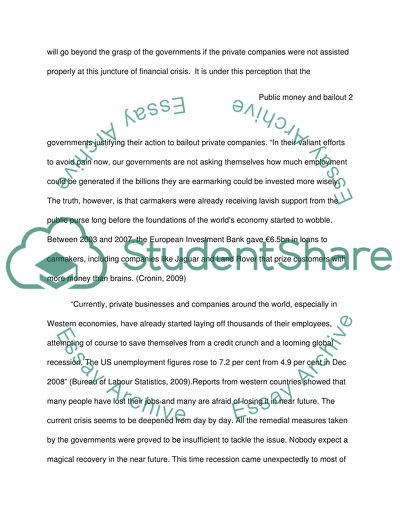Cite this document
(Public Money and Bailout of Privately Owned Companies Coursework, n.d.)
Public Money and Bailout of Privately Owned Companies Coursework. Retrieved from https://studentshare.org/finance-accounting/1530005-public-money-and-bailout
Public Money and Bailout of Privately Owned Companies Coursework. Retrieved from https://studentshare.org/finance-accounting/1530005-public-money-and-bailout
(Public Money and Bailout of Privately Owned Companies Coursework)
Public Money and Bailout of Privately Owned Companies Coursework. https://studentshare.org/finance-accounting/1530005-public-money-and-bailout.
Public Money and Bailout of Privately Owned Companies Coursework. https://studentshare.org/finance-accounting/1530005-public-money-and-bailout.
“Public Money and Bailout of Privately Owned Companies Coursework”, n.d. https://studentshare.org/finance-accounting/1530005-public-money-and-bailout.


